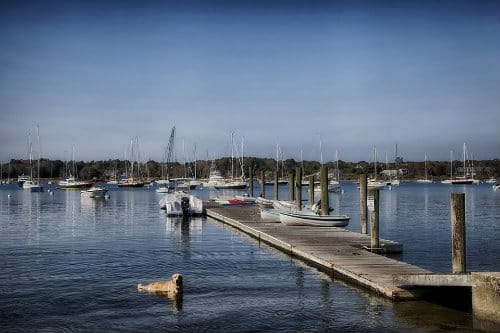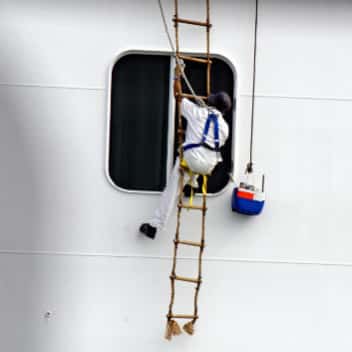Connecticut maritime and offshore workers often have several questions following an injury:
We can help answer your concerns following a Connecticut offshore injury in a free consultation. Contact us now.
In Connecticut, the various sectors of the maritime industry provide nearly 40,000 state residents with jobs and contribute billions of dollars to the state’s economy.
Workers in commercial fishing, seafood packaging, ship building/repairing, boat building, water transportation, sightseeing, and recreation all work hard at their jobs to support their families and keep their communities running. While the work may be rewarding, many offshore workers in Connecticut suffer serious injuries on the job.
Fortunately, there are federal maritime laws that protect offshore and maritime workers when they get hurt on the job.
Offshore workers may recover financial compensation for lost wages, medical bills, and other damages in a Jones Act claim. Other maritime workers who are not covered by the Jones Act may seek compensation through another maritime law called the Longshore and Harbor Workers’ Compensation Act. Unsure which type of compensation you may be eligible for? Our experienced offshore injury lawyers will help you find out.
For legal guidance from our lawyers representing injured maritime workers, schedule your free consultation today.


Connecticut has three deep-water ports, which are all under the control of the Connecticut Port Authority:
The Port of Bridgeport is located in Connecticut’s largest city and is it’s second-busiest port, with approximately 5 million tons of cargo moving through its waters each year. Transportation methods include water vessels, barges, and large trucks.
Top cargoes handled include:
The Port of New Haven is the busiest port between Boston and New York City and the largest deep-water port in Connecticut. This port handles approximately 18 million tons of cargo each year, including nearly all of Connecticut’s locally-manufactured goods.
The top cargoes transported through this port include:
The Port of New London is in a good location, but the facilities have been neglected over the years. However, there is currently legislation being proposed which would provide a large investment of federal money to upgrade the port’s facilities. The hope is that this investment will lead to more jobs and an uptick in businesses surrounding the port.
Depending on the nature of work duties, injured Connecticut maritime and offshore workers may seek financial compensation under either the Jones Act or Longshore and Harbor Workers’ Compensation Act (LHWCA).
Determining which system you’re covered under is not always easy, but an experienced maritime lawyer can help you better understand your options in a free consultation.
In any American industry, it’s common for injured workers to struggle to receive the financial compensation they deserve. This is especially true in the maritime industry, since these workers are covered by unique federal maritime laws. Jones Act claims which involve negligence are even more complex, since you must establish that some form of negligence was a contributing factor in your injury.
In order to get through the complexities of the claims process and deal with insurance companies who specialize in denying claims, it’s often necessary to have an experienced maritime injury lawyer by your side. Workers with legal representation are much more likely to recover the full compensation they deserve. To find out more about your rights, contact us today for a free consultation.
Related Reading: Applying For Compensation After A Florida Offshore Work Injury

 info@legalherald.com
info@legalherald.com